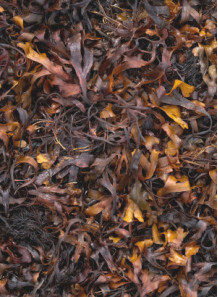Brown Seaweed Extract (Fucoidan 85%, Fucose 10%, Laminaria japonica)
Brown seaweed from the deep sea Brown Seaweed Extract (Laminaria japonica) with a concentration of Fucoidan of more than 85% and Fucose of more than 10%.
Molecular Weight Distribution of typical batch:
>1600kDa = 2.8%
1100-1600kDa = 1.9%
200-1100kDa = 12.9%
60-200kDa = 15.5%
20-60kDa = 26.4%
5-20kDa = 22.1%
<5kDa = 18.4%
Fucoidan is a sulfate compound of polysaccharides extracted from fucose and glucose, an important ingredient. Along with other elements including xylose, mannose and galactose, there has been a lot of international research on the benefits of fucoidan. Continuing studies have also found that fucoidan has the ability to promote good health.
Fucoidan has the ability to control immune system From the study it was found that Immune balancing It is influenced by fucoidan. This balance adjustment is The process of reducing cell activity Whether it is stimulating or inhibiting substances that help balance the immune system It will help increase the function of the immune system to be more effective. and can also reduce it When overstimulated
Fucose is a naturally occurring sugar. (Monosaccharides) which can be found in many foods. It is also a component of some glycoproteins and glycolipids in the human body. Although fucose is not generally consumed solely as a dietary supplement, But it plays an important role in various biological processes:
Cell Communication and Signaling: Fucose is a component of glycoproteins and glycolipids on the cell surface. These molecules play an important role in cell-to-cell communication and signaling. They are involved in processes such as cell adhesion. Regulation of the immune response and cell recognition Proper cell communication is essential for the normal functioning of the immune system and other physiological processes.
Gut health: Fucose is found in certain food sources. Including breast milk and may play a role in supporting the growth of beneficial gut bacteria. Some studies suggest that fucose can act as a prebiotic. It promotes the growth of probiotic bacteria in the gut microbiome. A healthy gut microbiome is associated with a number of health benefits. This includes improved digestion and immune function.
Anti-inflammatory effects: fucose-containing molecules, such as fucoidan, found in some seaweeds. It has been studied for its potential anti-inflammatory properties. These compounds may help reduce inflammation in the body, which is linked to many chronic diseases.
Antiviral effects: Some research indicates that fucose-containing molecules can interfere with the attachment of certain viruses to host cells. and may inhibit viral infection. However, studies in this area are still in their early stages. And more research is needed.
Potential anticancer properties: Some studies have explored the use of fucoidan. (Fucose-containing compounds) from seaweed in cancer research These compounds have shown potential anti-cancer effects in laboratory studies, such as inhibiting the growth of cancer cells. and stimulation of cell death (programmed cell death) However, clinical evidence in humans is limited.
Neuroprotection: New research is emerging That suggests that fucose-containing molecules may have neuroprotective properties. This may be beneficial for conditions related to neuroinflammation and neurodegeneration. This field of study is being studied continuously



